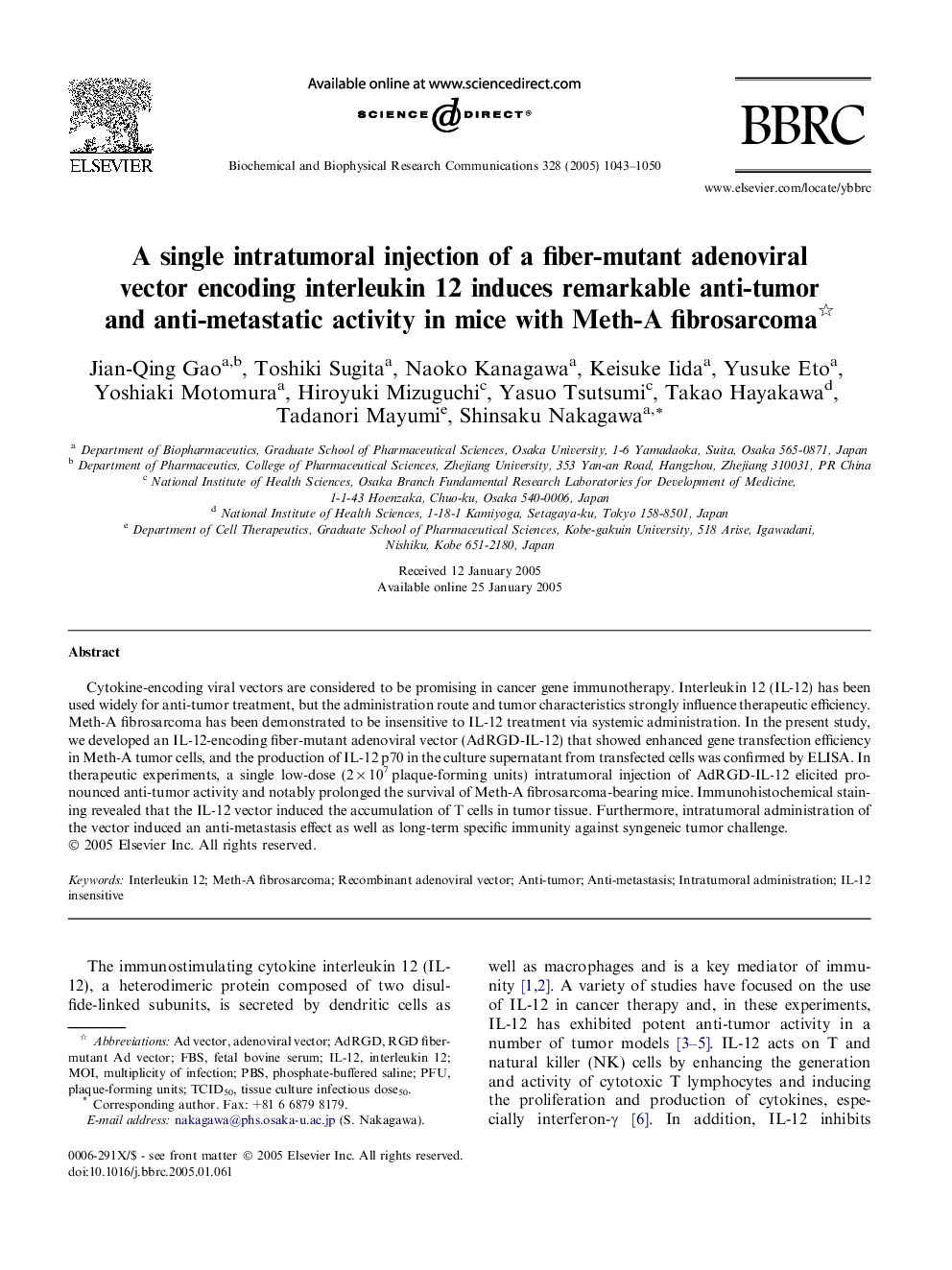| Article ID | Journal | Published Year | Pages | File Type |
|---|---|---|---|---|
| 10770622 | Biochemical and Biophysical Research Communications | 2005 | 8 Pages |
Abstract
Cytokine-encoding viral vectors are considered to be promising in cancer gene immunotherapy. Interleukin 12 (IL-12) has been used widely for anti-tumor treatment, but the administration route and tumor characteristics strongly influence therapeutic efficiency. Meth-A fibrosarcoma has been demonstrated to be insensitive to IL-12 treatment via systemic administration. In the present study, we developed an IL-12-encoding fiber-mutant adenoviral vector (AdRGD-IL-12) that showed enhanced gene transfection efficiency in Meth-A tumor cells, and the production of IL-12 p70 in the culture supernatant from transfected cells was confirmed by ELISA. In therapeutic experiments, a single low-dose (2Â ÃÂ 107Â plaque-forming units) intratumoral injection of AdRGD-IL-12 elicited pronounced anti-tumor activity and notably prolonged the survival of Meth-A fibrosarcoma-bearing mice. Immunohistochemical staining revealed that the IL-12 vector induced the accumulation of T cells in tumor tissue. Furthermore, intratumoral administration of the vector induced an anti-metastasis effect as well as long-term specific immunity against syngeneic tumor challenge.
Keywords
Related Topics
Life Sciences
Biochemistry, Genetics and Molecular Biology
Biochemistry
Authors
Jian-Qing Gao, Toshiki Sugita, Naoko Kanagawa, Keisuke Iida, Yusuke Eto, Yoshiaki Motomura, Hiroyuki Mizuguchi, Yasuo Tsutsumi, Takao Hayakawa, Tadanori Mayumi, Shinsaku Nakagawa,
